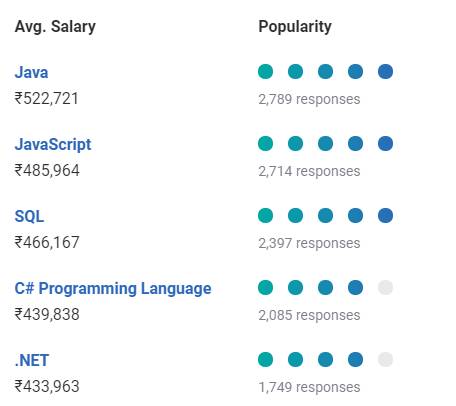
An environmental consultant, a professional who is trained in environmental issues, can help you to comply with regulations and prevent future problems. These professionals conduct investigations to determine the extent of potential danger from hazardous substances in soil, groundwater and surface water. They can also help clients avoid penalties, legal actions and misguided transactions by minimizing risk.
SQEPs are people who reduce risk and put clients in charge.
A SQEP is an individual who focuses on identifying, assessing, and implementing risk-reduction solutions. These individuals can help with many operational, economic, and environmental issues. They have the expertise and experience to reduce risks and keep clients in control. The Office for Nuclear Regulation has produced a Technical Assessment Guide for SQEPs, Human Factors Specialist Inspectors. This guide assists inspectors to determine the right number of SQEPs as well as how their tasks should be structured.
SQEPs need to have the ability to work in the particular field or under the supervision and guidance of SQEPs that have the same experience. SQEPs must also be certified to produce PSI or DSI reports. Regulation 3 of NESCS outlines the requirements for SQEP accreditation. The Users' guide also provides information about how to determine if someone is a SQEP.

They perform investigations to determine whether hazardous substances are present in soil, groundwater, surface water, or both.
A risk assessment refers to the determination of whether hazardous substances may be present in the environment. The risk assessment considers the likelihood of an adverse effect on the public health or the environment of the contaminant and the extent of exposure.
Most often, risk assessments are done together with remedial plan. These plans determine the necessary remedial actions for a specific site and identify the risks. They are created by considering current and potential land and resource use, environmental issues, and applicable federal and state laws. The cleanup level must meet, or exceed, a acceptable risk-based standard for the area's inhabitants.
They can offer many services
There are many areas of expertise that environmental consultants can help with. An example of their expertise is to help companies comply with air emission regulations or conduct site investigations. They can assist in the design of pollution control equipment or prepare annual Michigan Air Pollution Reporting System forms. They are also an invaluable resource for dealing with regulatory agencies.
Most environmental consultants work from offices or labs. However, they might also be out on the field. They will need flexibility, the ability to adapt to changing situations and be able to work in challenging circumstances. Their communication skills and project management abilities are essential as they work with other environmental consultants to complete projects. They must also be able maintain client satisfaction and files.

Locate an environmental consultant near to you
A combination of education and practical experience is required for a career as an environmental consultant. You will need to be interested in the environment and be able to do field research as well as analyze scientific data. Excellent communication and management skills will be required. Many environmental consultancies also offer graduate programs. Volunteering with local environmental organizations is also an option. Many consultancies hire individuals to provide assistance to environmental concerns for both the public and private sectors.
A professional environmental consultant can help you to meet environmental laws and regulations. The work of environmental consulting isn't without its difficulties. The work can be monotonous and requires a great deal of self-motivation. For instance, dealing with difficult clients may not be an easy task.
FAQ
Can anyone be a Consultant?
Consultants are people who help you reach your goals by giving advice about how to make it better, faster, or cheaper.
You may need a consultant to help you with problems, make decisions or negotiate with others.
Many consultants are hired for specific projects and tasks.
Consultants are often paid per hour or daily rather than per project.
What happens when the consultant finishes the job?
After the consultant has completed the work, they will submit a final document detailing the results. This report details the project timeline, deliverables, as well any other pertinent information.
Then, you'll review the report and decide whether the consultant met your expectations. If not, you can either request changes or terminate the contract.
What can I count on from my consultant to help me?
Once you select your consultant, you should expect to hear back from them within a few days. They will often ask about your company's mission, goals and products. Then, they'll send over a proposal outlining the scope of work, estimated time frame, fees, deliverables, milestones, etc.
If everything is in order, then the parties will enter into a written contract. The type and content of the contract will vary depending on whether the relationship is employer-employee/employer-independent contractor.
If all goes according to plan, the consultant will begin working immediately. The consultant will have full access to your files and resources. You'll also have access to their skills and knowledge.
Don't think that consultants are experts. It takes effort and practice to become an expert in whatever field you consult. Do not expect your consultant to be an expert in every aspect of your business.
How long does it take to become a consultant?
Depending on your industry and background, the time required will vary. Most people start out with a few months before they find work.
However, consultants can spend many years learning before they are able to find work.
Do I need legal counsel?
Yes! Yes. Many consultants will create contracts for clients without seeking legal advice. However, this can lead to problems down the road. For example, what happens if the client terminates the agreement before the consultant's completion date? Or, what happens if the consultant doesn't meet the deadlines set forth in the contract?
Avoid potential legal problems by consulting a lawyer.
What qualifications do you require to become a Consultant?
Not only is it important to have an MBA but you should also have business consulting experience. You must have at least two years' experience working in consulting and/or training within a large company.
It is essential that you have experience working closely with senior management on strategic development projects. This will require you to be comfortable sharing your ideas with clients and getting their buy-in.
You'll also need to pass a professional qualification exam such as the Chartered Management Institute's Certified Management Consultant (CMC) certification.
Statistics
- According to IBISWorld, revenues in the consulting industry will exceed $261 billion in 2020. (nerdwallet.com)
- 67% of consultants start their consulting businesses after quitting their jobs, while 33% start while they're still at their jobs. (consultingsuccess.com)
- My 10 years of experience and 6-step program have helped over 20 clients boost their sales by an average of 33% in 6 months. (consultingsuccess.com)
- Over 50% of consultants get their first consulting client through a referral from their network. (consultingsuccess.com)
- Over 62% of consultants were dissatisfied with their former jobs before starting their consulting business. (consultingsuccess.com)
External Links
How To
What Does A Typical Day For A Consultant Look Like?
Each type of work will dictate the day's pace. You'll spend your time researching new ideas and meeting clients.
You will have many meetings where clients and you can discuss their issues. These meetings can take place over the phone, via email, online, or face to face.
You may also be asked to prepare proposals, which are documents outlining your ideas and plans for clients. These proposals will be presented to clients by you and a mentor.
After all the preparation and planning, it's time to actually create some content. You could write articles, design websites, edit photos or conduct interviews.
Depending on the scope of the project, you may need to do some research in order to gather relevant statistics or figures. It may be necessary to know how many customers are currently using your products or services.
Once you have collected enough information, it's now time to present the findings to your clients. You can present your findings verbally or in writing.
You must also follow up with clients following the initial consultation. You could phone them occasionally to check on things or send an email asking them to confirm that you have received their proposal.
This is a long process that can take some time. However, it is crucial to stay focused and to maintain good relationships.